Summary: Essential Hair Growth Vitamins & Supplements
This comprehensive, evidence-based guide reveals the critical connection between nutritional deficiencies and hair loss affecting 50% of women and 70% of men. Hair follicles are the body’s second most rapidly dividing cells, requiring constant nutrient supply for optimal growth, strength, and density.
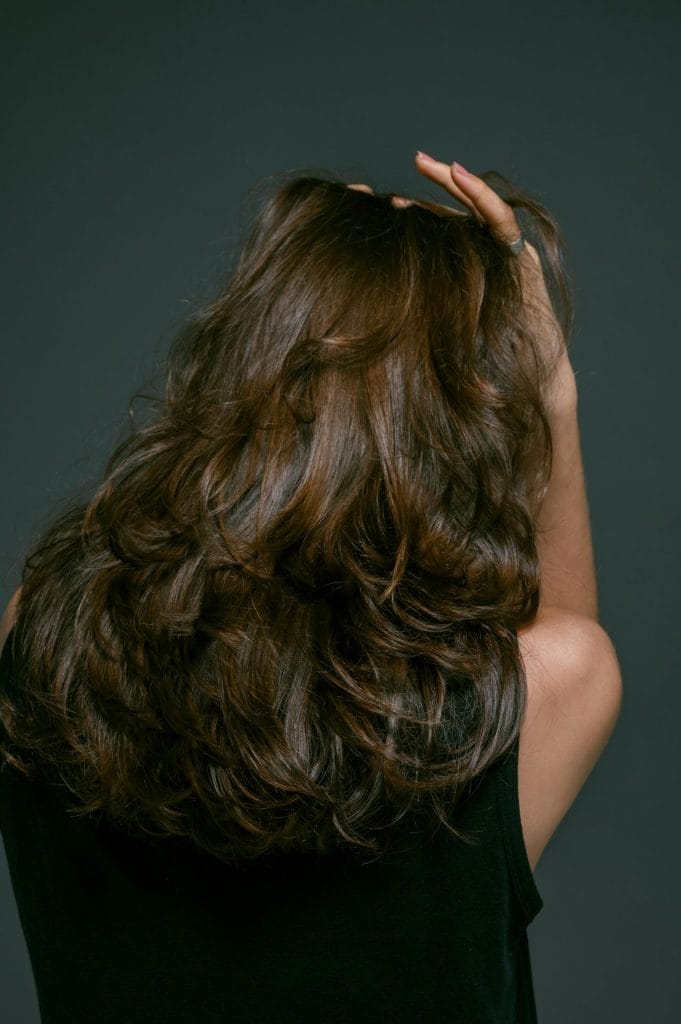
Key Topics Covered:
• 7 essential vitamins and minerals for hair health • Optimal dosages and food sources for each nutrient • Step-by-step implementation strategies • Timeline expectations (3-6 months for visible results) • Specialized recommendations for different life stages • Cost-effective strategies and safety considerations
Essential Nutrients Include:
• Biotin (Vitamin B7) – keratin production and hair structure • Iron – oxygen transport to hair follicles • Vitamin D – follicle creation and development • Vitamin C – collagen synthesis and antioxidant protection • Zinc – growth regulation and hormone balance • B-Complex vitamins – cellular energy and red blood cell formation • Vitamin E – antioxidant protection against damage
Evidence Base:
• Backed by 30+ peer-reviewed studies • Expert dermatologist insights and recommendations • Research-backed benefits and safety guidelines • Professional consultation guidelines for sustainable results
The Hair Loss Struggle That’s Holding You Back
You wake up each morning and notice more strands on your pillow. In the shower, you watch helplessly as clumps of hair swirl down the drain. Looking in the mirror, you see a reflection that doesn’t match the vibrant, confident person you feel inside. Your hair looks thinner, lackluster, and seems to have lost its former glory.
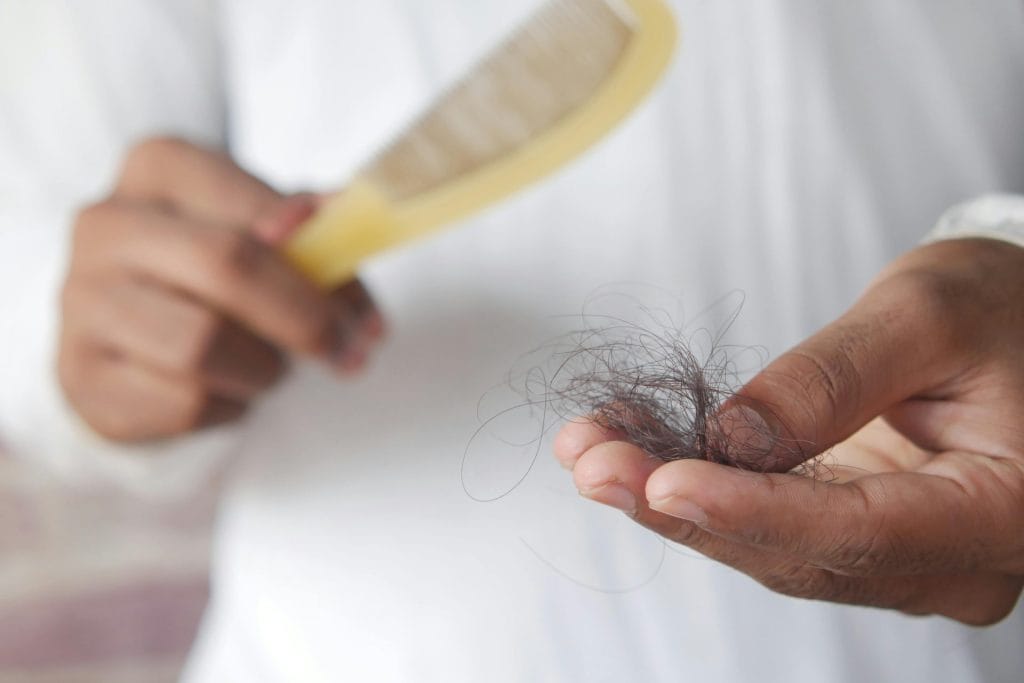
You’re not alone in this struggle. In fact, 50 percent of women and 70 percent of men will experience hair loss and thinning in their lifetime. Whether you’re dealing with postpartum hair loss, stress-related thinning, or simply noticing your hair isn’t as thick as it used to be, the emotional impact is real and profound.
Maybe you’ve tried expensive shampoos, treatments, and salon visits, only to see minimal results. You’ve probably wondered if there’s something deeper going on – something internal that’s affecting your hair’s ability to grow strong and healthy. The frustration builds as you realize that surface treatments aren’t addressing the root cause of your hair concerns.
The Hidden Problem: Your Hair’s Nutritional Foundation
Here’s what most people don’t realize: your hair is essentially a reflection of your internal health. Board-certified dermatologist Jose Diego Mier tells Yahoo Life, “When it comes to hair health, it’s crucial to maintain an overall healthy lifestyle. Eating a balanced diet with plenty of fruits, vegetables and proteins can give your body the essential nutrients it needs to support hair growth” [9].

The uncomfortable truth is that even if you think you’re eating well, you might be missing crucial nutrients that your hair follicles desperately need. Nutrient deficiencies may cause hair loss, so multivitamins may be better for hair growth than traditional hair supplements [1].
Think about it: your hair follicles are among the most rapidly dividing cells in your body, second only to bone marrow. They require a constant supply of nutrients to function optimally. When you’re deficient in key vitamins and minerals, your body prioritizes vital organs over your hair, leading to thinning, breakage, and lackluster growth.
The Cascade Effect of Nutritional Deficiency
The problem compounds itself. When your hair follicles don’t receive adequate nutrition:
- Hair growth slows down – The anagen (growth) phase becomes shorter
- Existing hair becomes weak – Strands break easily and lack resilience
- Hair appears dull – Without proper nutrients, hair loses its natural shine
- Shedding increases – More hairs enter the telogen (resting) phase prematurely
- New growth is compromised – Even new hair that grows is thinner and more fragile

This creates a frustrating cycle where your hair problems seem to get worse over time, despite your best efforts with external treatments.
The Science-Backed Solution: Strategic Nutritional Support
The good news? There’s hope, and it starts from within. Research shows that addressing nutritional deficiencies can significantly impact hair health and growth. Over-the-counter supplements can play a helpful role in supporting general hair health and may assist with certain types of hair loss, particularly when deficiencies are present [7].
Let’s explore the essential vitamins and supplements that can transform your hair from the inside out.
The Essential Hair Growth Vitamins: Your Foundation for Healthy Hair – Hair strengthening nutrients
1. Biotin (Vitamin B7): The Hair Structure Builder
Biotin is perhaps the most well-known vitamin for hair health, and for good reason. Biotin is a critical vitamin for healthy hair growth, and deficiency will lead to thinning hair [11]. This water-soluble B vitamin plays a crucial role in keratin production – the protein that forms the structure of your hair.
How Biotin Works:
- Supports keratin infrastructure in hair
- Aids in the metabolism of amino acids that build hair proteins
- Helps strengthen existing hair strands
The Research Reality: While biotin deficiency can cause hair loss, there have been no randomized, controlled trials to prove the efficacy of supplementation with biotin in normal, healthy individuals [11]. However, if you have a deficiency, supplementation can be beneficial [14].
Optimal Dosage: Most of the websites touting biotin for hair growth recommend taking 2-5 milligrams (2,000-5,000 mcg) of biotin in supplement form each day, though the daily recommended intake is much lower at 30 mcg for adults [20].
Food Sources: Eggs, liver, nuts, seeds, sweet potatoes, and spinach.
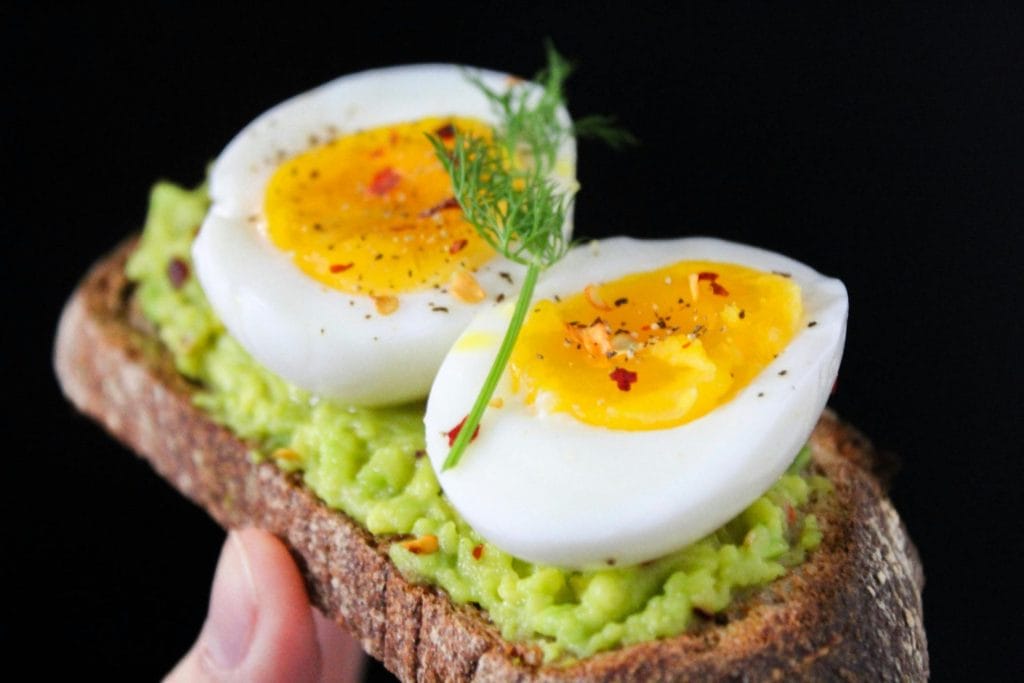
2. Iron: The Oxygen Carrier
Iron deficiency is one of the most overlooked causes of hair loss, especially in women. Women with nonscarring alopecia had lower ferritin values compared to women without hair loss, indicating a clear connection between iron levels and hair health [28].
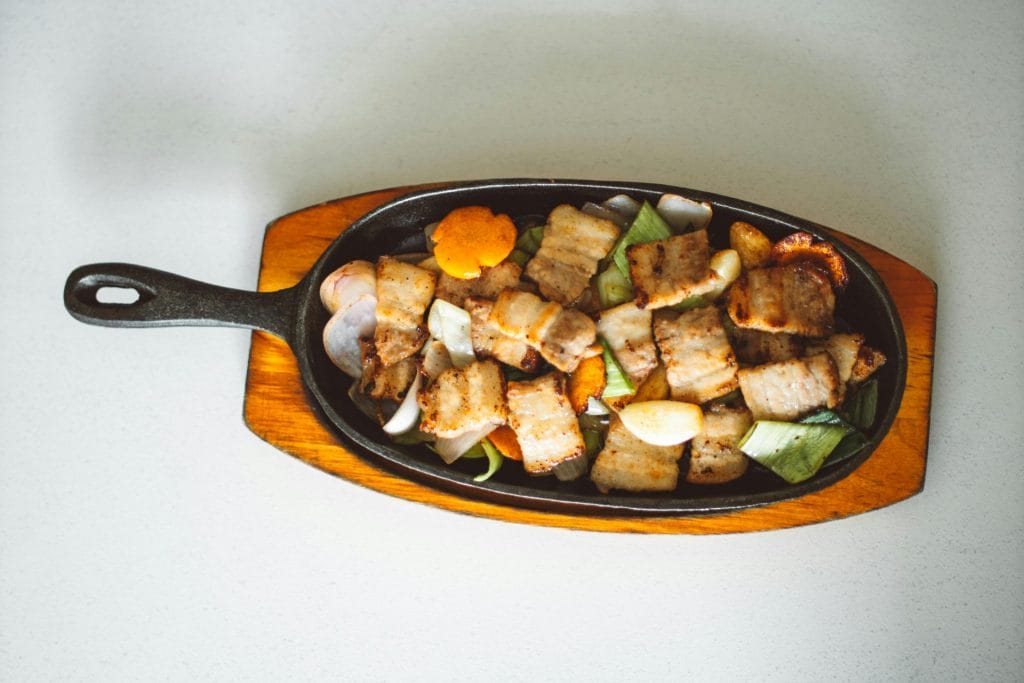
How Iron Supports Hair Growth:
- Iron is a necessary mineral for the synthesis of haemoglobin, a protein found in red blood cells that transports oxygen to tissues throughout the body
- Oxygen is essential for hair follicle health and function
- Iron supports the anagen (growth) phase of the hair cycle

The Iron-Hair Loss Connection: Severe iron deficiency anemia can cause hair loss. This includes androgenetic alopecia or pattern hair loss [21]. Research shows that women with hair loss can benefit from higher ferritin levels [22].
Who’s at Risk:
- Women with heavy menstrual periods
- Vegetarians and vegans
- People with digestive disorders
- Those following restrictive diets
Optimal Levels: Many experts suggest ferritin levels of at least 60-70 ng/mL for optimal hair health, though normal laboratory ranges may be lower [28].
3. Vitamin D: The Follicle Creator
Vitamin D is crucial for hair follicle health and development. Vitamin D is essential for creating the cells that develop into hair follicles. It also supports healthy bones and your immune system [1].
How Vitamin D Works:
- Stimulates hair follicle creation
- Regulates the hair growth cycle
- Supports immune function that affects scalp health
Deficiency Impact: A deficiency in vitamin D can lead to hair loss. Studies have also shown that vitamin D helps create new hair follicles [1].
Sources: Sunlight exposure, fatty fish, fortified foods, and supplements.

4. Vitamin C: The Collagen Producer and Antioxidant
Vitamin C serves multiple functions in hair health. Vitamin C is a powerful antioxidant that protects against oxidative stress from free radicals, which can hinder hair growth. Furthermore, the body requires vitamin C to produce collagen, an important part of hair structure [1].
Benefits for Hair:
- Collagen production for hair structure
- Antioxidant protection against damage
- Enhanced iron absorption
- Protection against oxidative stress
Food Sources: Citrus fruits, berries, bell peppers, broccoli, and leafy greens.
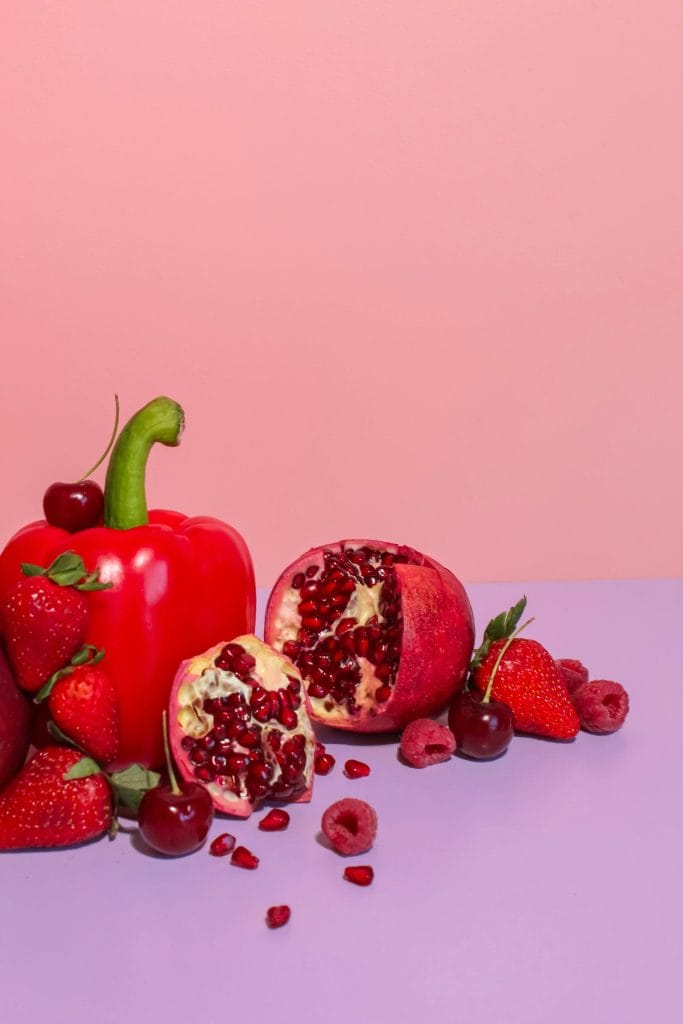
5. Zinc: The Growth Regulator
Zinc plays a crucial role in hair tissue growth and repair. Zinc plays a crucial role in hair tissue growth and repair, and helps keep the sebaceous glands around the hair follicles functioning properly [1].
How Zinc Helps:
- Supports hair follicle function
- Regulates hormone levels that affect hair
- Aids in protein synthesis
- Maintains scalp health
Deficiency Signs: Hair loss is a common symptom of zinc deficiency, but excessive supplementation can also cause hair loss [1].
6. B-Complex Vitamins: The Energy Providers
The B-vitamin family works synergistically to support hair health. Other group B vitamins help produce red blood cells, carrying oxygen and nutrients to the scalp and hair follicles. These processes are vital for hair growth [8].
Key B Vitamins for Hair:
- B12: Essential for red blood cell formation
- Folate: Supports cell division and DNA synthesis
- B6: Helps with protein metabolism
- Niacin: Improves blood circulation to the scalp
7. Vitamin E: The Antioxidant Protector
Vitamin E has been proven to help hair grow thicker and prevent breakage effectively [8]. As a powerful antioxidant, it protects hair follicles from oxidative stress.
Glam Dust
Radiant Skin – Luscious Hair – Pristine Nails
Vitamin Shots
The Ultimate Brain And Body Supplement
Vitamin Sprinkles
Fuel Your Brain – Nourish Your Body – With One Delicious Sprinkle
The Most Effective Hair Growth Supplements
1. Comprehensive Multivitamins
Biotin, selenium, zinc, vitamins A, B, C, D, and E, may help promote hair growth [2]. A high-quality multivitamin ensures you’re covering all nutritional bases.
What to Look For:
- Biotin (2,500-5,000 mcg)
- Iron (if you’re deficient)
- Vitamin D3 (1,000-2,000 IU)
- Zinc (8-11 mg)
- B-complex vitamins
- Vitamin C (500-1,000 mg)
2. Specialized Hair Growth Formulas
Many supplements combine multiple hair-supporting nutrients in targeted formulations. These supplements help boost your daily nutrients so that your body has all of the building blocks needed for hair growth [2].
Popular Targeted Ingredients:
- Marine collagen peptides
- Saw palmetto (for hormonal support)
- Horsetail extract (silica source)
- Adaptogens for stress management
3. Collagen Supplements
Collagen provides amino acids that are building blocks for hair protein. Best collagen supplement for hair health: Thorne Collagen Plus Powder is mentioned as a top pick by experts [6].
Creating Your Personal Hair Growth Strategy
Step 1: Assess Your Current Status
Before starting any supplement regimen:
- Get blood work to check for deficiencies (iron/ferritin, vitamin D, B12)
- Evaluate your current diet and lifestyle
- Consider factors that might be affecting your hair (stress, medications, health conditions)
Step 2: Choose Quality Supplements
The derms we spoke to caution that choosing a quality vitamin or supplement can be challenging since the FDA doesn’t require manufacturers to provide proof of safety or efficacy [9].
Quality Indicators:
- Third-party testing
- Good Manufacturing Practices (GMP) certification
- Transparent labeling
- Reputable brands with clinical research
Step 3: Be Patient and Consistent
Hair grows about a half inch a month. That means it can take three to six months to notice improvement—or up to a year to reap the full benefit of any hair-loss treatment [9].
Timeline Expectations:
- Month 1-2: Reduced shedding (if due to deficiency)
- Month 3-4: Improved hair texture and strength
- Month 6-12: Visible improvement in thickness and growth
Step 4: Support with Lifestyle Changes
Supplements work best as part of a comprehensive approach:
- Balanced diet rich in protein, healthy fats, and vegetables
- Stress management through meditation, exercise, or therapy
- Gentle hair care practices to minimize damage
- Adequate sleep for optimal hormone production

Glam Dust
Radiant Skin – Luscious Hair – Pristine Nails
Vitamin Shots
The Ultimate Brain And Body Supplement
Vitamin Sprinkles
Fuel Your Brain – Nourish Your Body – With One Delicious Sprinkle
Special Considerations for Different Life Stages
Women of Reproductive Age
Iron deficiency is common due to menstruation. In premenopausal women, the most common causes of iron deficiency anemia are menstrual blood loss [25]. Focus on iron, B vitamins, and overall nutritional support.
Postpartum Period
Best for postpartum hair loss: Ritual Essential Postnatal Multivitamin [9]. Postpartum hair loss is normal but can be supported with proper nutrition during this demanding time.
Menopause and Beyond
Hormonal changes affect hair growth. Focus on nutrients that support hormone balance and overall health, including vitamin D, B vitamins, and antioxidants.
Potential Risks and Considerations
Supplement Interactions
Some supplements can interfere with medications or lab tests. Another concern surrounding biotin is that it may interfere with certain common lab tests done by your doctors [15].
Over-Supplementation Risks
Over-supplementation of certain nutrients, including selenium and vitamins A and vitamin E, can actually backfire and cause hair loss if taken in excess [1].
When to See a Professional
Consult a healthcare provider if you experience:
- Sudden, rapid hair loss
- Patchy hair loss
- Scalp irritation or pain
- No improvement after 6 months of supplementation
- Signs of nutrient toxicity

Best vitamins, linked to hair loss, supplements for hair, hair growth supplement, pattern hair loss
The best vitamins and vitamins for hair growth are often linked to hair loss prevention and can be found in supplements for hair and hair growth supplement formulas designed to promote hair growth, improve hair growth, and help hair growth in cases of pattern hair loss, female pattern hair loss, and male and female pattern hair. These products play a role in hair and may support hair growth by providing essential vitamins and minerals needed for hair growth, essential nutrients for hair, and minerals for hair growth. They contribute to hair health and healthier hair, and their role in hair growth includes strengthening hair follicles, preventing hair loss, and supporting the health of your hair.
A nutritional supplement, vitamin or mineral blend, and supplements for hair growth often contain nutrients for hair and nutrients that support hair, which may be helpful for hair loss, help your hair grow, and result in hair that is strong and healthy. Best vitamins for hair growth, best foods for hair growth, and a balanced diet with foods for hair, foods like nutrient-rich greens and proteins, and a variety of foods contribute to hair growth include and are important for hair growth.
Improve hair growth, help improve hair, healthy hair growth, lead to hair loss, cause hair loss
Hair regrowth and hair growth vitamins are often used to help improve hair health, help promote hair growth, and help your hair grow. Essential for hair growth and essential for hair health, these vitamins and minerals for healthier hair and essential vitamins and minerals are often marketed for hair growth, promoting healthy hair and preventing hair loss due to deficiencies. Hair healthy strands and hair is primarily composed of proteins that are essential for hair development, including hair follicles, which can be affected by hair loss and low nutrient intake.
The role of vitamins and minerals in hair health, the role in hair health, and the role in hair growth are critical to prevent hair thinning, type of hair loss, and causes of hair loss. Hair loss and low intake of key vitamins and minerals may contribute to hair loss, contribute to hair thinning, and cause hair loss. For patients with hair loss, supplements may play a role in hair recovery, help improve hair growth, lead to increased hair density, help your hair grow stronger, and be helpful for hair loss prevention. These may promote hair growth, may be helpful for hair regrowth, and may support hair growth while preventing further hair loss and promoting strong and healthy hair over time.
The Foods vs. Supplements Debate
Food is the best source of the necessary vitamins for hair growth. However, if your diet does not provide sufficient vitamin levels, you may consider taking dietary supplements for added support [8].
Best Food Sources for Hair Health
Protein Sources:
- Lean meats, fish, eggs
- Legumes, quinoa, nuts
- Greek yogurt, cottage cheese

Iron-Rich Foods:
- Red meat, poultry, fish
- Spinach, lentils, beans
- Pumpkin seeds, dark chocolate

Vitamin C Foods:
- Citrus fruits, berries
- Bell peppers, broccoli
- Kiwi, strawberries
Healthy Fats:
- Avocados, nuts, seeds
- Fatty fish (salmon, sardines)
- Olive oil, coconut oil

Glam Dust
Radiant Skin – Luscious Hair – Pristine Nails
Vitamin Shots
The Ultimate Brain And Body Supplement
Vitamin Sprinkles
Fuel Your Brain – Nourish Your Body – With One Delicious Sprinkle
Debunking Common Hair Growth Myths
Myth 1: “More is Always Better”
Taking mega-doses of vitamins doesn’t necessarily lead to better results and can sometimes be harmful. Most people get plenty of biotin from their diets. Yet, some conditions, lifestyle habits, and medications can cause low levels [14].
Myth 2: “Results Happen Overnight”
Hair growth is a slow process. Hair growth isn’t a quick fix; instead, it requires an everyday lifestyle change, and one way to encourage long-term growth is through hair growth vitamins [2].
Myth 3: “All Hair Loss is the Same”
Different types of hair loss require different approaches. Hair loss is a complex medical condition with many potential root causes [7].
Success Stories: What Real Results Look Like
Many people have found success with targeted nutritional support:
- Improved Hair Texture: Users report shinier, stronger hair within 2-3 months
- Reduced Shedding: Less hair fall during washing and brushing
- Enhanced Growth Rate: Faster-growing hair that maintains length better
- Increased Thickness: Fuller-looking hair with improved density
Customer review: “I have been using these gummies for over five months, and I have noticed a major difference in my hair growth. My hair is growing faster and fuller. I highly recommend this product because it works” [2].
The Future of Hair Growth Nutrition
Research continues to evolve in understanding the relationship between nutrition and hair health. Emerging areas include:
- Personalized nutrition based on genetic testing
- Microbiome support for scalp health
- Advanced delivery systems for better nutrient absorption
- Combination therapies integrating nutrition with other treatments
Building Your Hair Growth Action Plan
Week 1-2: Assessment Phase
- Schedule blood work with your healthcare provider
- Evaluate your current diet and lifestyle
- Research quality supplement brands
- Take baseline photos of your hair
Week 3-4: Implementation Phase
- Begin your chosen supplement regimen
- Start incorporating more hair-healthy foods
- Implement stress management techniques
- Adopt gentle hair care practices
Month 2-3: Monitoring Phase
- Track changes in hair shedding
- Note improvements in hair texture
- Adjust supplements based on blood work results
- Continue consistent daily routine
Month 4-6: Evaluation Phase
- Assess visible improvements in hair growth
- Compare to baseline photos
- Fine-tune your approach based on results
- Consider adding complementary treatments if needed
Cost-Effective Strategies
You don’t need to spend a fortune to support hair health:
Budget-Friendly Options:
- Generic multivitamins with hair-supporting nutrients
- Whole food sources of key nutrients
- Basic supplements like vitamin D and iron (if deficient)
- DIY approaches combining diet and targeted supplementation
Investment-Worthy Options:
- High-quality, specialized hair formulas with research backing
- Professional-grade supplements with superior absorption
- Comprehensive testing to identify specific deficiencies
- Long-term maintenance plans for sustained results

Conclusion
Your journey to healthier, stronger hair doesn’t have to be a mystery filled with expensive treatments that don’t work. By understanding the science behind hair growth and addressing nutritional deficiencies that may be holding you back, you can create a foundation for lasting hair health.
Remember, supplements may be particularly beneficial when hair loss is linked to a vitamin deficiency [7]. The key is identifying your specific needs and taking a targeted, consistent approach supported by quality nutrition and healthy lifestyle choices.
Your hair is a reflection of your overall health, and when you nourish your body properly, your hair will follow. Be patient with the process, stay consistent with your regimen, and celebrate the small improvements along the way. With the right nutritional support, you can achieve the healthy, vibrant hair you’ve been longing for.
The path to better hair health starts with a single step – and that step begins today. Your future self will thank you for making the investment in your hair’s nutritional foundation now.
Frequently Asked Questions (FAQ)
Q: How long does it take to see results from hair growth vitamins?
A: Hair grows about a half inch a month. That means it can take three to six months to notice improvement—or up to a year to reap the full benefit of any hair-loss treatment [9]. Most people begin noticing reduced shedding within 1-2 months, with visible improvements in thickness and growth appearing after 3-6 months of consistent use.
Q: Do hair growth vitamins really work?
A: Supplements may be particularly beneficial when hair loss is linked to a vitamin deficiency [7]. The effectiveness depends on whether you have underlying nutritional deficiencies. Research shows mixed results, with the most benefit seen in people who are deficient in specific nutrients like iron, biotin, or vitamin D.
Q: What is the most important vitamin for hair growth?
A: There isn’t one single “most important” vitamin, as hair health requires multiple nutrients working together. However, women with hair loss can benefit from higher ferritin levels [22], making iron particularly important for many women. Biotin, vitamin D, and B-complex vitamins are also crucial for optimal hair growth.
Q: Can taking too many vitamins cause hair loss?
A: Yes, over-supplementation of certain nutrients, including selenium and vitamins A and vitamin E, can actually backfire and cause hair loss if taken in excess [1]. This is why it’s important to work with a healthcare provider and avoid mega-doses unless specifically recommended.
Q: Should I take biotin for hair growth?
A: Despite its popularity in the media and amongst consumers, biotin has no proven efficacy in hair and nail growth of healthy individuals [17]. However, if you have a biotin deficiency, supplementation can be helpful. Most people get adequate biotin from their diet, but certain medications and conditions can affect biotin levels.
Q: What blood tests should I get before starting hair growth supplements?
A: Key tests include ferritin (iron stores), vitamin D, vitamin B12, complete blood count (CBC), and thyroid function. Iron deficiency (ID) was defined as serum ferritin level <60 ng/mL in research [28], though many experts recommend levels of 70+ ng/mL for optimal hair health.
Q: Are gummies as effective as pills for hair growth?
A: The form matters less than the quality and dosage of active ingredients. Both gummies and pills can be effective if they contain adequate amounts of hair-supporting nutrients. However, gummies may contain added sugars and sometimes lower concentrations of active ingredients due to space constraints.
Q: Can iron supplements help with hair loss?
A: Women with nonscarring alopecia had lower ferritin values compared to healthy women [28], suggesting iron supplementation may help if you’re deficient. However, iron supplements should only be taken if deficiency is confirmed through blood testing, as excess iron can be harmful.
Q: Do I need different vitamins if I’m vegetarian or vegan?
A: The only source of vitamin B12 is animal products, so if you are vegetarian, consider taking vitamin B12 supplements [8]. Vegetarians and vegans may also need extra attention to iron, zinc, and protein intake, as plant-based sources are sometimes less easily absorbed.
Q: Can stress affect hair growth even if I’m taking vitamins?
A: Yes, chronic stress can disrupt the hair growth cycle regardless of nutritional status. Poor nutrition, as well as other environmental and lifestyle factors such as stress, can impact gene expression and, in particular, hormone production, which can play an important role in the hair growth cycle [10]. Combining nutritional support with stress management is often most effective.
Q: Are expensive hair growth supplements worth it?
A: Price doesn’t always indicate quality or effectiveness. The derms we spoke to caution that choosing a quality vitamin or supplement can be challenging since the FDA doesn’t require manufacturers to provide proof of safety or efficacy [9]. Look for third-party testing, clinical research, and transparent ingredient lists rather than focusing solely on price.
Q: Can hormonal changes affect hair growth supplements’ effectiveness?
A: Yes, hormonal fluctuations from pregnancy, menopause, thyroid disorders, or PCOS can significantly impact hair growth regardless of supplementation. Best for postpartum hair loss: Ritual Essential Postnatal Multivitamin [9] suggests that different life stages may require tailored nutritional approaches.
References
[1] Medically reviewed by Amy Richter, RD — Written by Ellen Landes, MS, RDN, CPT. “Best Vitamins for Hair Growth in 2025.” Healthline, June 24, 2025.
[2] Beth Gillette and Siena Gagliano. “18 Best Hair Growth Vitamins and Supplements (Reviewed for 2025).” Cosmopolitan, May 9, 2025.
[3] “5 Best Vitamins for Hair Growth, Dermatologist-Ranked.” U.S. News & World Report.
[4] “Guide to Best Vitamins and Minerals for Hair Growth.” International Society of Hair Restoration Surgery (ISHRS), January 11, 2025.
[5] “12 Best Hair Growth Vitamins of 2025, According to Experts.” Harper’s Bazaar.
[6] Carol Lee and Katie Berohn. “9 Best Hair Growth Vitamins and Supplements, Tested & Reviewed for 2025.” ELLE, April 3, 2025.
[7] “Do Hair Growth Vitamins Work?” U.S. Dermatology Partners, February 27, 2025.
[8] “5 Best Vitamins for Hair Growth.” Vinmec International Hospital, June 17, 2025.
[9] “The best vitamins and supplements for hair growth in 2025, according to dermatologists and trichologists.” Yahoo Life, January 23, 2025.
[10] Jennifer Bush, PA-C. “Vitamins, minerals, and hair loss: Is there a connection?” Harvard Health Publishing, April 22, 2024.
[11] Patel DP, Swink SM, Castelo-Soccio L. “A Review of the Use of Biotin for Hair Loss.” Skin Appendage Disorders, 2017.
[12] Yelich A, Jenkins H, Holt S, Miller R. “Biotin for Hair Loss: Teasing Out the Evidence.” Journal of Clinical and Aesthetic Dermatology, 2024.
[13] Patel DP, Swink SM, Castelo-Soccio L. “A Review of the Use of Biotin for Hair Loss.” PubMed, 2017.
[14] Medically reviewed by Imashi Fernando, MS, RDN, CDCES — Written by Gavin Van De Walle, MS, RD and Tess Catlett. “Biotin for Hair Growth: Does It Work?” Healthline, March 15, 2023.
[15] Zempleni J, Wijeratne SSK, Hassan YI. “The Infatuation With Biotin Supplementation: Is There Truth Behind Its Rising Popularity?” Journal of Drugs in Dermatology.
[16] “Biotin for Hair Loss: Teasing Out the Evidence.” HCA Healthcare Scholarly Commons.
[17] “Does Biotin Really Work for Hair Growth?” Cleveland Clinic, October 26, 2022.
[18] Farah RS, Hordinsky MK. “Response to: ‘Rethinking biotin therapy for hair, nail, and skin disorders.'” Journal of the American Academy of Dermatology, August 7, 2018.
[19] Patel DP, Swink SM, Castelo-Soccio L. “A Review of the Use of Biotin for Hair Loss.” ResearchGate, August 1, 2017.
[20] “How to take biotin for hair growth.” SingleCare, August 25, 2021.
[21] “Iron deficiency hair loss: Symptoms, treatment, and regrowth.” Medical News Today, February 26, 2025.
[22] Trost LB, Bergfeld WF, Calogeras E. “The diagnosis and treatment of iron deficiency and its potential relationship to hair loss.” PubMed.
[23] Olsen EA, Reed KB, Cacchio PB, Caudill L. “Iron deficiency in female pattern hair loss, chronic telogen effluvium, and control groups.” ScienceDirect, October 13, 2010.
[24] Trost LB, Bergfeld WF, Calogeras E. “The diagnosis and treatment of iron deficiency and its potential relationship to hair loss.” ScienceDirect, April 21, 2006.
[25] “Commentary: Iron deficiency and hair loss: Problems with measurement of iron.” ScienceDirect, October 2, 2010.
[26] “The Link Between Iron Deficiency and Hair Loss: Understanding the Science Behind the Symptoms.” Clinikally, March 31, 2023.
[27] “Improving hair texture damaged by iron deficiency.” Wimpole Clinic, April 28, 2025.
[28] Treister-Goltzman Y, Peleg R, Yarza S. “Iron Deficiency and Nonscarring Alopecia in Women: Systematic Review and Meta-Analysis.” PMC.
[29] Treister-Goltzman Y, Peleg R, Yarza S. “Iron Deficiency and Nonscarring Alopecia in Women: Systematic Review and Meta-Analysis.” Karger Publishers, March 3, 2022.
[30] Su LH, Huang HC. “Diagnosis and treatment of female alopecia: Focusing on the iron deficiency-related alopecia.” PMC.







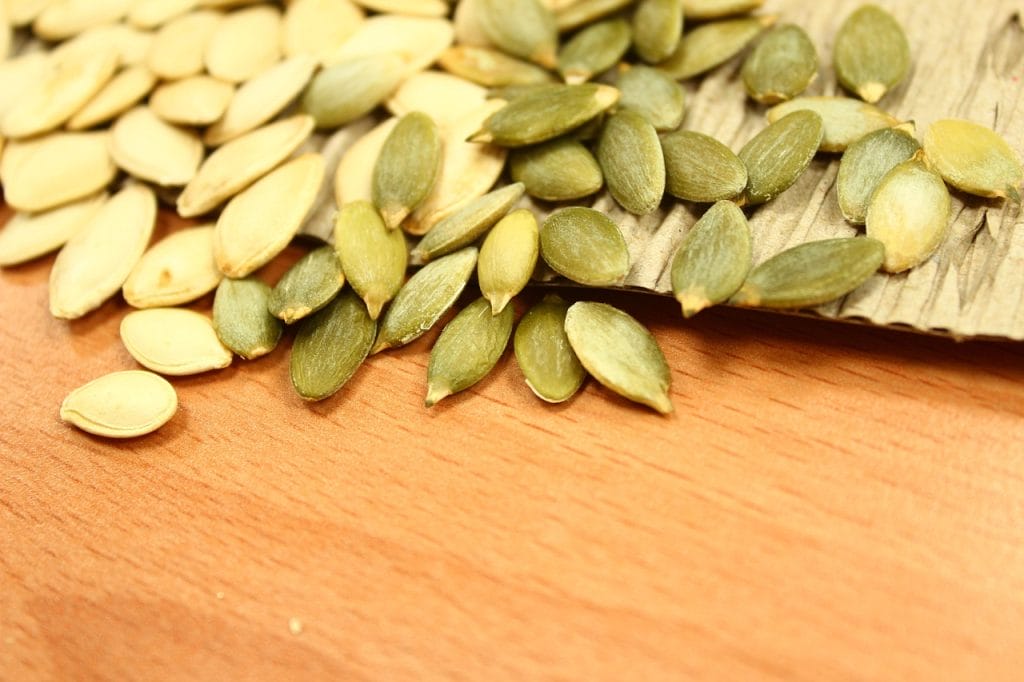
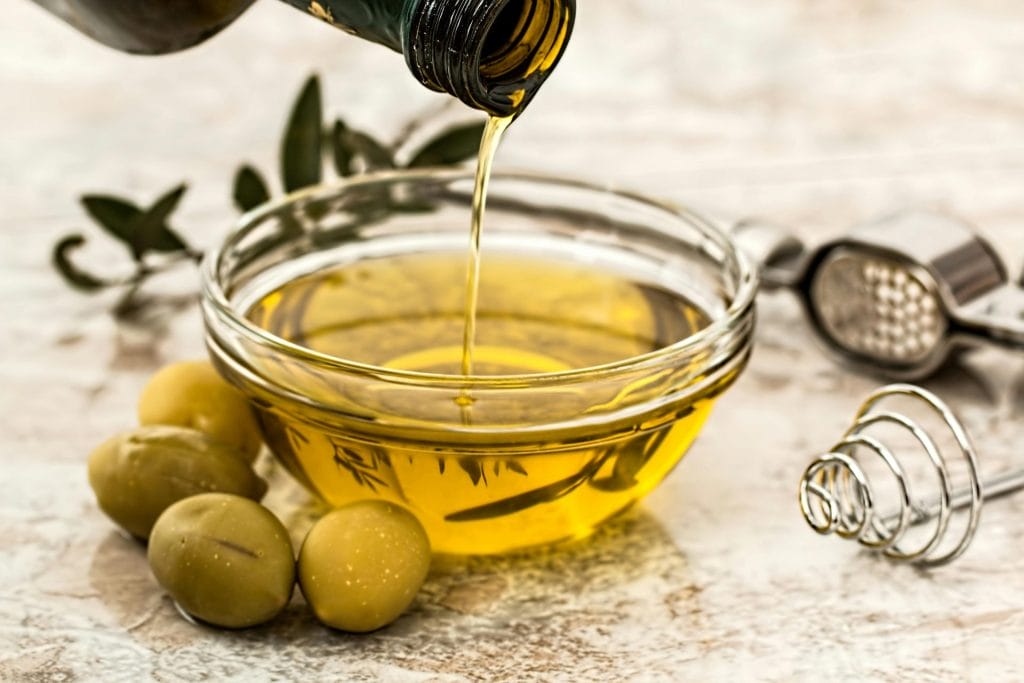

.png)
